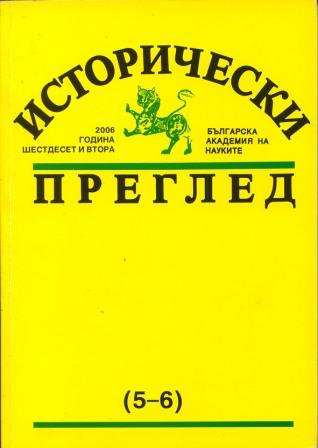Движение на идеите в европеизма (От Великата френска революция до Първата световна война)
The European Idea Movement (From the French Revolu- tion of 1789 to the First World War)
Author(s): Nikola AvreyskiSubject(s): History
Published by: Институт за исторически изследвания - Българска академия на науките
Summary/Abstract: The study investigates the role of the French Revolution of 1789 as a turning point in the development of the European idea. In the first place, the author explores how the European idea, which at first had appeared among European intellectuals, spread among other social stratum and became an important part of European citizens. lives, penetrated deeply the .new-born. European public opinion and the new .-isms.. Secondly, he demonstrates how the European idea justified the activities of the new established international non-governmental organizations. Further, the author argues that traditional Christian-Muslim confrontation was replaced by the belief in unification of Europe under the slogan .Freedom, Equality and Fraternity.. The author rejects the claim that nationalism was incompatible with and impediment to European idea. He demonstrates that both nationalism and European idea existed hand in hand. Moreover, the author claims, nationalism even contributed to the enlargement of European cultural and sociopolitical space, and paved the way to the European idea. Accordingly, the author argues that 19th and early 20th centuries could be characterized as ones of internationalism. On the basis of these arguments, the author concludes that Europeans developed not only national but also European identity. The author analyzes in detail the projects for political unification of Europe from two different perspectives. On the one hand, he demonstrates the existence of continuity between projects in question and those already existed during the preceding centuries. On the other hand, he outlines the difference between the older projects for European unification and the new ideas that formed a significant part in 19th and 20th century projects. Last, but not least, the author argues that European idea gradually found a considerable place in political phraseology of European statesmen and stood at the center of their political plans and programmes.
Journal: Исторически преглед
- Issue Year: 2007
- Issue No: 5-6
- Page Range: 85-118
- Page Count: 34
- Language: Bulgarian
- Content File-PDF

